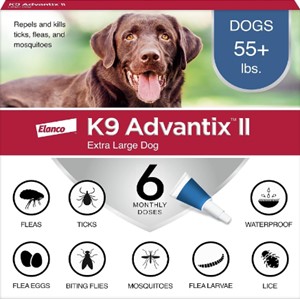Common Health Problems for Dogs
Becoming Aware of Your Dog’s Health Issues!
Introduction
Dogs are not just our loyal companions; they are also members of our family. As a responsible pet owner, it is our duty to ensure their well-being and provide them with the best possible care.
Knowing the common health problems for dogs will help you understand what these health issues are and how to diagnose them and take appropriate action. Some health problems are specific to certain dog breeds, such as breathing complications for flat-faced dogs. But several other canine health issues can affect any dog.
As a dog owner, you must be aware of all potential health problems your dog may experience. In this article, we will explore the most commonly diagnosed health problems dogs’ face, including their causes, symptoms, and prevention strategies.
Cataracts
This is a huge issue especially in older dogs. It can affect the way they see. A cataract is an opacity or cloudiness of the lens that prevents light from reaching the retina, which leaves vision impairment.
Cataracts can develop in one or both eyes and progress slowly or even rapidly that leads to vision impairment. Cataracts can develop or may be present in dogs when they are born or can develop in the early stages of a puppy’s life. As a dog owner you need to know the signs to help you if your dog has cataracts.
You may see a whitish, blue or grey area in the center of the eye as well as behavioral changes related to decreased vision. Dogs have a keen sense of smell and hearing which can help them to compensate any loss of vision. It may be difficult for pet owners to diagnose cataracts in an early stage.
If you should notice any of these signs, it is best to contact your vet as soon as possible so they can examine your dog and suggest any necessary treatment recommendations.
Poisoning
Symptoms of dog poisoning vary widely, depending on the kind of toxin a pet has been exposed to. The signs can range from vomiting to drooling, breathing difficulties, seizures, or worse, coma. Some of the most common poisonous substances are human foods like chocolates, grapes, raisins, onions, and caffeine.
Other known culprits are human medications, household cleaning products, pesticides, and some plants. Your furry friend relies on your ability to identify the earliest signs of trouble and act promptly.
Arthritis and Joint Problems
As dog age, they are prone to developing arthritis and other joint-related problems. Arthritis can cause stiffness, pain, and reduced mobility. Large dog breeds and overweight dogs are particularly susceptible to this disease.
The most common affected joints are hips, knees, shoulders and elbows. You should notice your dog is getting slower to their feet in the morning or in colder weather. Your dog may be able to hide any pain they suffer from arthritis.
The best thing you can do is to ensure that your dog is not overweight or obese and use joint supplements and medications that are prescribed by your veterinarian. You can also help your pet to ease any pain by getting him an orthopedic dog bed. They are made to help dogs that suffer from joint pain and arthritis.
Skin Conditions
Skin problems are among the most prevalent health issues in dogs. They can manifest in various forms, such as allergies, infections, or parasites. Common skin conditions in dogs include:- Flea Allergy Dermatitis (FAD): This condition is caused by an allergic reaction to flea saliva. Dogs with FAD may itch excessively, develop hot spots, and have noticeable hair loss.
- Atopic Dermatitis: Allergies to pollen, dust mites, and other environmental factors can lead to atopic dermatitis. Symptoms include itching, redness, and skin inflammation.
- Pyoderma: Bacterial infections of the skin can result in pyoderma. Symptoms may include pustules, redness, and itching.
Ear Infections
Ear infections are another common health problem in dogs, especially in those with floppy ears as in long-eared breeds, and dogs that spend a lot of time outdoors, or have a history of allergies.Gastrointestinal Issues
Digestive problems are frequently diagnosed in dogs. These issues can result from dietary indiscretion, food allergies, or underlying health conditions. Common gastrointestinal problems include any of the following:- Gastritis: This is an inflammation of the stomach lining that can lead to gastritis. Symptoms may include vomiting, diarrhea, and lethargy.
- Gastroenteritis: A more severe form of gastrointestinal upset, gastroenteritis involves both the stomach and the intestines. It can lead to severe diarrhea and dehydration.
- Pancreatitis: This is an inflammation of the pancreas and can cause abdominal pain, vomiting, and diarrhea.
Dental Issues
Dental health is often overlooked by most pet owners but it’s critical for a dog’s overall well-being. Dental problems in dogs can include any of the following:- Periodontal Disease: This condition affects the gums and tooth-supporting structures. Signs of this disease may include bad breath, bleeding gums, and difficulty in eating.
- Tooth Decay: Dogs can develop cavities, especially in small breeds. Cavities can lead to toothaches and pain while eating.
- Broken Teeth: Chewing on hard objects can lead to broken teeth, which can be painful and may require extraction.
Obesity
Obesity is a growing concern among dogs, as it can lead to a range of health problems, including diabetes, kidney disease, joint issues, arthritis, and heart disease. It also is a cause of long-term illness.Heartworm Disease
Heartworm disease is a potentially life-threating condition that is transmitted through mosquito bites. Heartworms are long, parasitic worms that live and grow to great lengths in the dog’s heart and lungs.Broken Bones
Just like humans, dogs can also suffer a bone fracture or break that was caused by abnormal stress on the bone, usually from a traumatic event like being struck by a car or falling from a height. Your dog will try to remain brave and will avoid showing you that they are in pain.Cancer
Cancer can affect dogs of any age, breed, or size. Just like us, dogs can develop cancers as they get older. Some of the common types of cancers in dogs include lymphoma, mast cell tumors, breast cancer, prostate cancer, and bone cancer.Diabetes
Diabetes mellitus is a metabolic disorder that is characterized by high blood sugar levels. Diabetic dogs are usually between 4-14 years of age and most are diagnosed between 7-10 years of age.Allergies
Allergies in dogs can manifest themselves as food allergies, environmental allergies (atopic dermatitis), or contact allergies. Common allergens include pollen, certain foods, and household chemicals used in cleaning. Identifying and avoiding allergens, as well as working with a veterinarian to develop an allergy management plan can help greatly improve a dog’s quality of life.Fleas and Ticks
The most common parasite that nearly every dog will get during their lifetime are fleas and ticks. Fleas jump from one host to the other, and your dog will usually pick them up by coming into close contact with an infested animal.Conclusion
We shared a lot of information about the most common health issues dogs can have. Ensuring the well-being of our furry friend requires vigilance, education, and proactive care as pet parents.Shop Flea & Tick Medications
You can shop for flea and tick prevention medications below. Just select the product of your choice and you will be taken to Amazon to place your order. As an Amazon associate, I earn from qualified purchases.
K9 Advantix II Flea & Tick Treatment
K9 Advantix II Flea & Tick Treatment
K9 Advantix II Flea & Tick Treatment
Related Articles
If you are interested, below are some related articles that may be helpful.- Christmas Presents For My Dog
- Critical Signs Your Dog Needs Help
- How To Repair A Dog Bed
- Signs Your Dog Is Ill
- When Should A Dog Bed Be Replaced
- Using Alexa for Dog Behaviors





